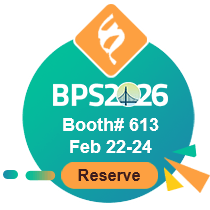Recombinant Rat CD40 cell lysate
| Cat.No. : | CD40-1262RCL |
| Product Overview : | Rat TNFRSF5 / CD40 derived in Human Cells. The whole cell lysate is provided in 1X Sample Buffer.Browse all transfected cell lysate positive controls |
- Specification
- Gene Information
- Related Products
- Download
| Species : | Rat |
| Source : | Human Cells |
| Tag : | Non |
| Preparation method : | Transfected cells were cultured for 48hrs before collection. The cells were lysed in modified RIPA buffer with cocktail of protease inhibitors. Cell debris was removed by centrifugation and then centrifuged to clarify the lysate. The cell lysate was boiled for 5 minutes in 1 x SDS sample buffer (50 mM Tris-HCl pH 6.8, 12.5% glycerol, 1% sodium dodecylsulfate, 0.01% bromophenol blue) containing 5% b-mercaptoethanol, and lyophilized. |
| Lysis buffer : | Modified RIPA Lysis Buffer: 50 mM Tris-HCl pH 7.4, 150 mM NaCl, 1mM EDTA, 1% Triton X-100, 0.1% SDS, 1% Sodium deoxycholate, 1mM PMSF |
| Quality control Testing : | 12.5% SDS-PAGE Stained with Coomassie Blue |
| Recommended Usage : | 1. Centrifuge the tube for a few seconds and ensure the pellet at the bottom of the tube.2. Re-dissolve the pellet using 200μL pure water and boiled for 2-5 min.3. Store it at -80°C. Recommend to aliquot the cell lysate into smaller quantities for optimal storage. Avoid repeated freeze-thaw cycles.Notes:The lysate is ready to load on SDS-PAGE for Western blot application. If dissociating conditions are required, add reducing agent prior to heating. |
| Stability : | Samples are stable for up to twelve months from date of receipt at -80°C |
| Storage Buffer : | 50 mM Tris-HCl pH 7.4, 150 mM NaCl, 1mM EDTA, 1% Triton X-100, 0.1% SDS, 1% Sodium deoxycholate, 1mM PMSF |
| Storage Instruction : | Lysate samples are stable for 12 months from date of receipt when stored at -80°C. Avoid repeated freeze-thaw cycles. Prior to SDS-PAGE fractionation, boil the lysate for 5 minutes. |
| Gene Name | Cd40 CD40 molecule, TNF receptor superfamily member 5 [ Rattus norvegicus ] |
| Official Symbol | CD40 |
| Synonyms | CD40; CD40 molecule, TNF receptor superfamily member 5; tumor necrosis factor receptor superfamily member 5; CD40 antigen, TNF receptor superfamily member 5; tumor necrosis factor receptor superfamily, member 5; Tnfrsf5; |
| Gene ID | 171369 |
| mRNA Refseq | NM_134360 |
| Protein Refseq | NP_599187 |
| Pathway | Adaptive Immune System, organism-specific biosystem; Allograft rejection, organism-specific biosystem; Allograft rejection, conserved biosystem; Asthma, organism-specific biosystem; Asthma, conserved biosystem; Autoimmune thyroid disease, organism-specific biosystem; Autoimmune thyroid disease, conserved biosystem; |
| Function | binding; enzyme binding; molecular_function; protein binding; receptor activity; |
| ◆ Recombinant Proteins | ||
| CD40-628H | Recombinant Human CD40 Protein | +Inquiry |
| CD40-108HA | Recombinant Human CD40 protein, Fc-tagged, APC labeled | +Inquiry |
| CD40-167CAF488 | Recombinant Canine CD40 Protein, Fc-tagged, Alexa Fluor 488 conjugated | +Inquiry |
| Cd40-86M | Recombinant Mouse Cd40 protein, His-tagged | +Inquiry |
| CD40-741R | Recombinant Rhesus macaque CD40 protein, His-tagged | +Inquiry |
| ◆ Cell & Tissue Lysates | ||
| CD40-1254CCL | Recombinant Cynomolgus CD40 cell lysate | +Inquiry |
| CD40-2617HCL | Recombinant Human CD40 cell lysate | +Inquiry |
| CD40-1262RCL | Recombinant Rat CD40 cell lysate | +Inquiry |
| CD40-1831MCL | Recombinant Mouse CD40 cell lysate | +Inquiry |
| CD40-001CCL | Recombinant Canine CD40 cell lysate | +Inquiry |
Not For Human Consumption!
Inquiry
- Reviews (0)
- Q&As (0)
Ask a Question for All CD40 Products
Required fields are marked with *
My Review for All CD40 Products
Required fields are marked with *



